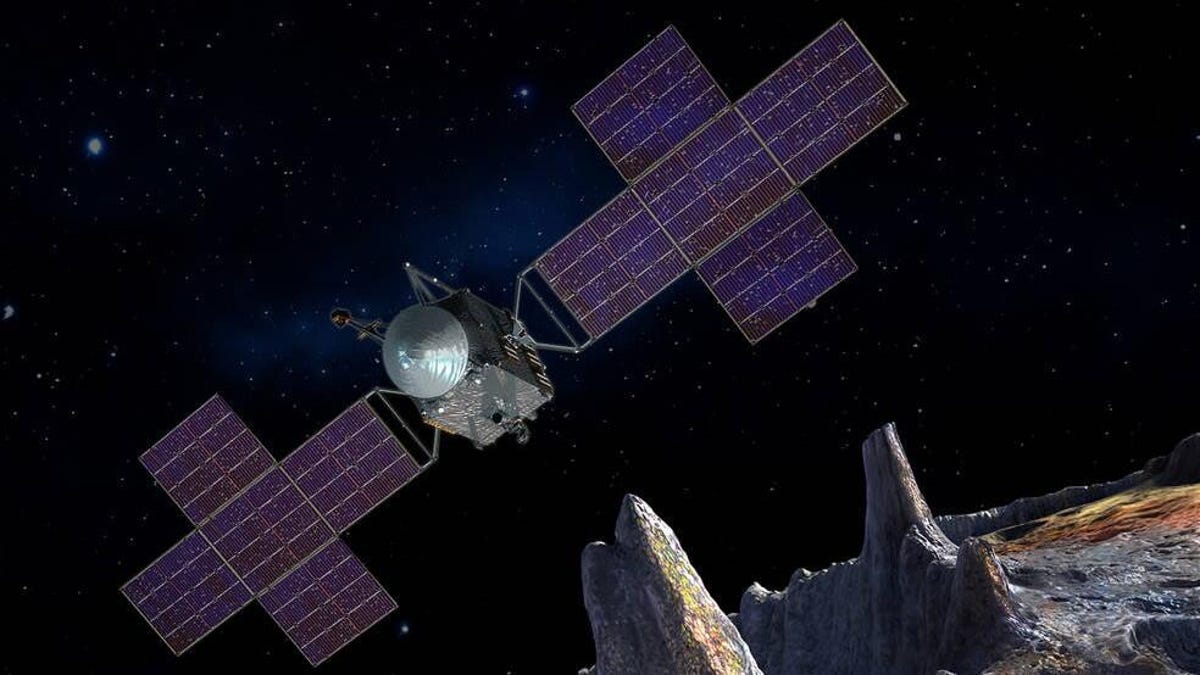NASA Delays Mission to Valuable Asteroid Psyche on a Falcon Heavy Rocket

An illustration of the Psyche spacecraft with its solar arrays extended.
What's happening
A spacecraft built to visit an unusual asteroid won't get off the ground by the end of a short launch window.
Why it matters
We may have to wait till 2030 for a mission to land on the mysterious and potentially valuable asteroid Psyche.
NASA's hope to launch a spacecraft to investigate the metal-rich asteroid Psyche in 2022 has slipped into at least next year.
The Psyche mission was originally supposed to launch in August atop a SpaceX Falcon Heavy rocket, but NASA announced in May that a software glitch would delay liftoff until at least September. Now the agency says it won't be able to get off the ground during the launch window, which ends Oct. 11.
"We have run out of time for the 2022 launch opportunity," Dr. Laurie Leshin, director of NASA's Jet Propulsion Laboratory, told reporters Friday. "It's a challenge with the software for the guidance, navigation and control system."
The software in question was completed several months late, and Psyche principal investigator Lindy Elkins-Tanton of Arizona State University said there have been challenges setting up the complex testing environment needed to validate it.
"We have no known problems with the GNC software, we just haven't been able to test it," Elkins-Tanton said, referencing the guidance, navigation and control system.
The delay means that launch will not happen until 2023 or 2024, and the spacecraft will not arrive at Psyche until 2029 or 2030.
"Flying to a distant metal-rich asteroid, using Mars for a gravity assist on the way there, takes incredible precision. We must get it right," Leshin said in a statement. "The decision to delay the launch wasn't easy, but it is the right one."
The mission's destination is an odd asteroid officially named 16 Psyche that has such a high composition of metals that some scientists speculate it may actually be the core of an ancient planet. The hope is that the expedition can provide insight into the detailed makeup of the object and its origins.
Another NASA mission named Janus, which is designed to study twin binary asteroid systems, was slated to ride along on the Falcon Heavy launch. The space agency said it is looking into other options for the mission.
Clarification at 9 p.m. PT: The headline has been changed to specify that the mission will no longer launch in 2022.

